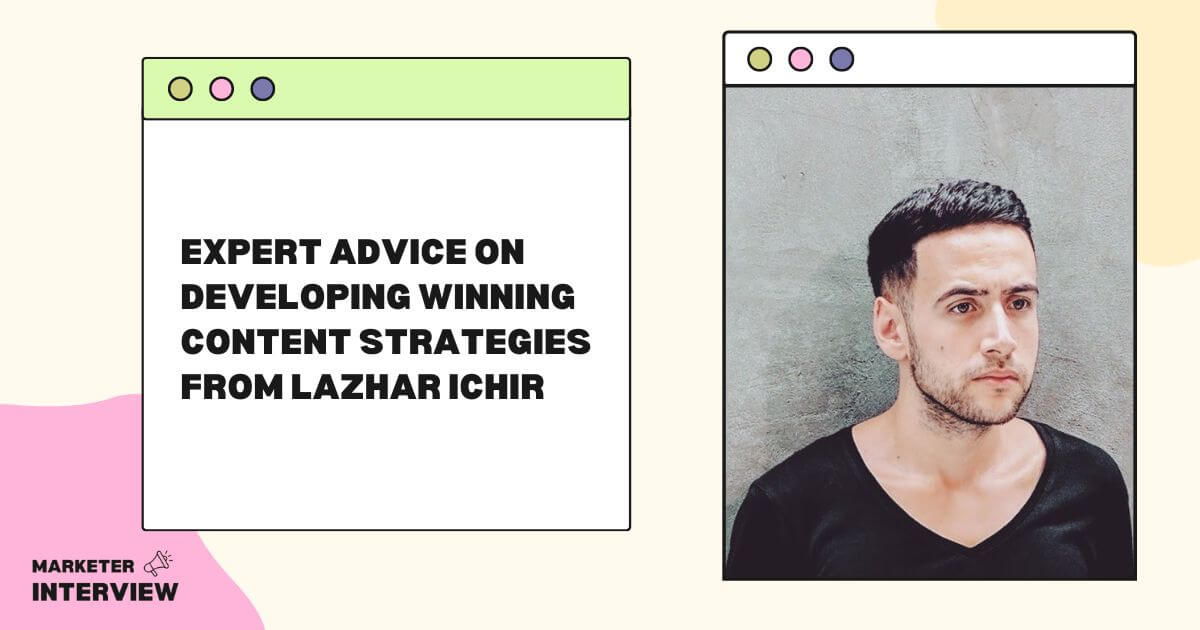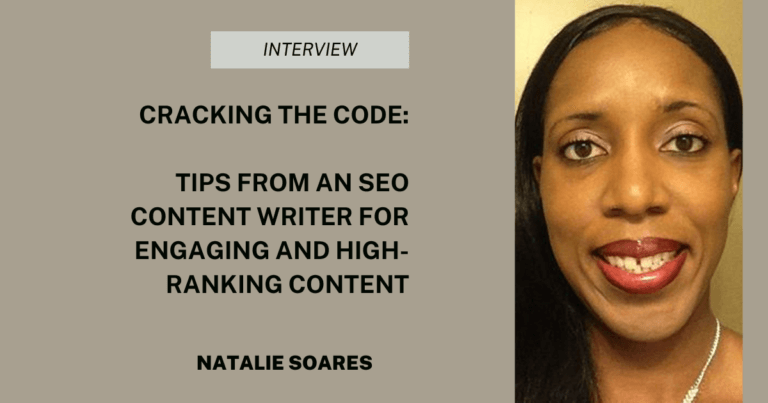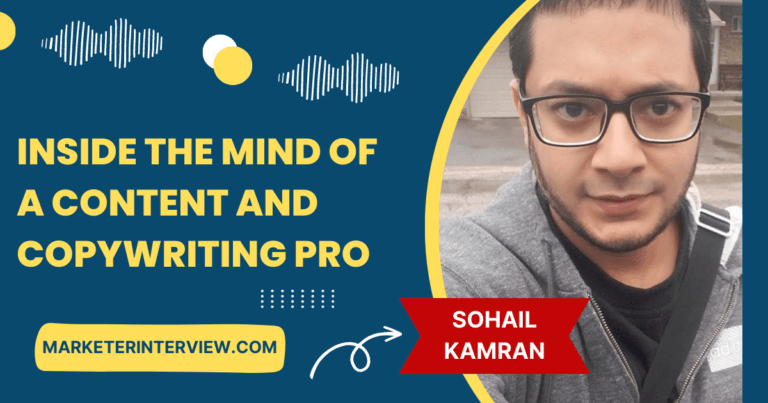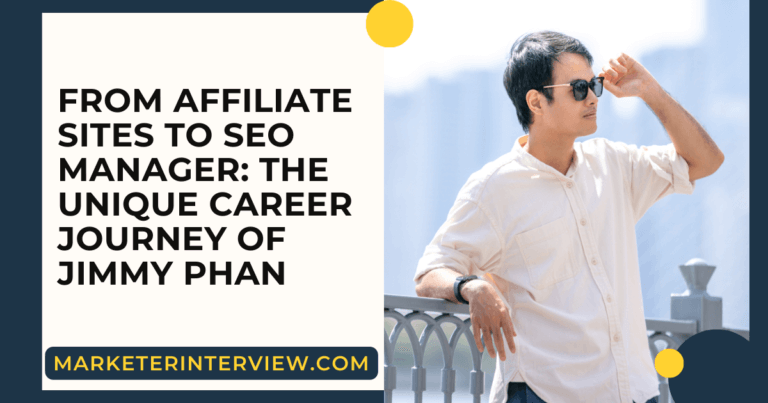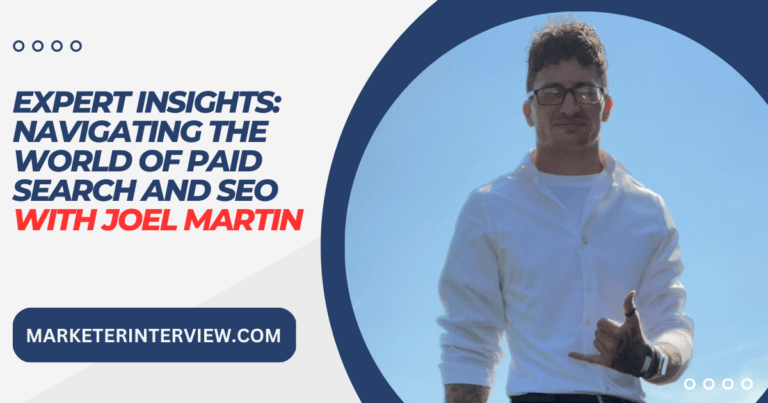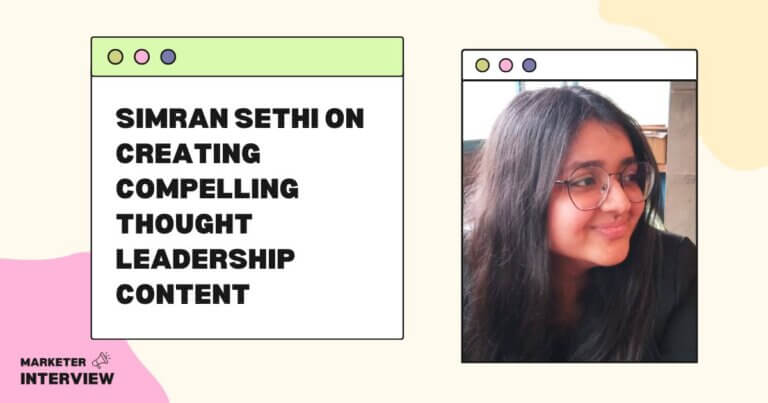Expert Advice on Developing Winning Content Strategies from Lazhar Ichir
In this interview, we have the pleasure of speaking with Lazhar Ichir, a digital marketing expert who has spent years developing and implementing successful SEO and content strategies for clients across various industries.
With his agency, TOPICSEED, Lazhar, and his team have honed their content creation and keyword research approach, leveraging data and analytics to inform their strategies and stay ahead of the competition.
In this interview, Lazhar shares his insights on how he got started in marketing, the importance of content in a marketing strategy, his process for conducting keyword research, and much more.
Contents
- 1 What inspired you to pursue a career in marketing, and how did you get started in this field?
- 2 Please tell us about your experience with SEO and how you stay up-to-date with the latest trends and changes in search algorithms.
- 3 How important do you believe content is in the overall marketing strategy, and what are some critical factors to creating successful content?
- 4 Can you share some of the challenges you have faced while working on SEO and content for clients and how you overcame them?
- 5 Please walk us through your process for conducting keyword research and identifying opportunities for organic search growth.
- 6 How do you leverage data and analytics to inform your SEO and content strategies, and what tools or software do you use?
- 7 Can you tell us about any successful marketing campaigns you have worked on and what made them effective?
- 8 How do you incorporate AI and programming into your marketing work, and what benefits do these technologies offer?
- 9 What advice would you give someone just starting in marketing and interested in specializing in SEO and content?
- 10 Finally, please share with us some of the tools and software you use in your day-to-day work as a marketer and how they help you be more efficient and effective.
What inspired you to pursue a career in marketing, and how did you get started in this field?
I am now in my mid-thirties, but I have been playing with coding and computers since my early teenage years. So, I’ve always built websites (most never went live or public), and I have always hoarded domain names (don’t we all?)
However, my entry into digital marketing happened when I moved to London from France and joined an entertainment company. At the time, Facebook was all the rage on social media, and we all had Blackberry phones.
After a year or so, I spent more and more time working on my websites and even properly launched a pet-related blog. This was my first encounter with SEO at a very intentional and strategic level. And it has been fascinating ever since.
Please tell us about your experience with SEO and how you stay up-to-date with the latest trends and changes in search algorithms.
I learned why some niche websites were doing well, and others weren’t. Next, I learned how focusing on cheap vanity metrics and short-lived tactics wouldn’t help me build a long-lasting business and brand.
Then, the next step was to scale SEO, as it was challenging. You have so many processes and ideas in mind and so little time to implement and fine-tune them.
Eventually, I built a fully-remote team around me over the years before it was cool. We focused on higher-quality content, authoritativeness, and what today is called E-E-A-T.
I have a team member reviewing the latest SEO news daily and giving me a digest when necessary. And I’m also on Twitter, absorbing factual news (rather than egomaniac tweets and misleading charts).
As we have met quite some success with our pet blog receiving millions of yearly readers from the US/UK/AU/CA, I got contacted by brands across multiple industries for various consulting gigs.
It was fun to work on different challenges and problem spaces. I recently started my digital marketing agency, TOPICSEED, and we have already worked with hand-picked global brands for lead generation.
How important do you believe content is in the overall marketing strategy, and what are some critical factors to creating successful content?
Content is a hard sell when you run an agency. It does not yield spectacular results immediately and costs money to create. It also gets very few readers for a good few weeks or months.
However, it’s an incredibly long-lasting revenue generator once the momentum continues. Depending on the business, I may recommend an ephemeral content marketing strategy alongside quicker ROI-positive strategies (PPC, social media).
Especially with recent Google algorithm updates, content cannot be treated as a commodity.
We’ve all been there – the more articles you publish, the more visitors you get, so that’s what you do: keep on publishing. Well, this no longer works as of the last couple of years. Each piece of content must be valuable, and it should be treated as its own project.
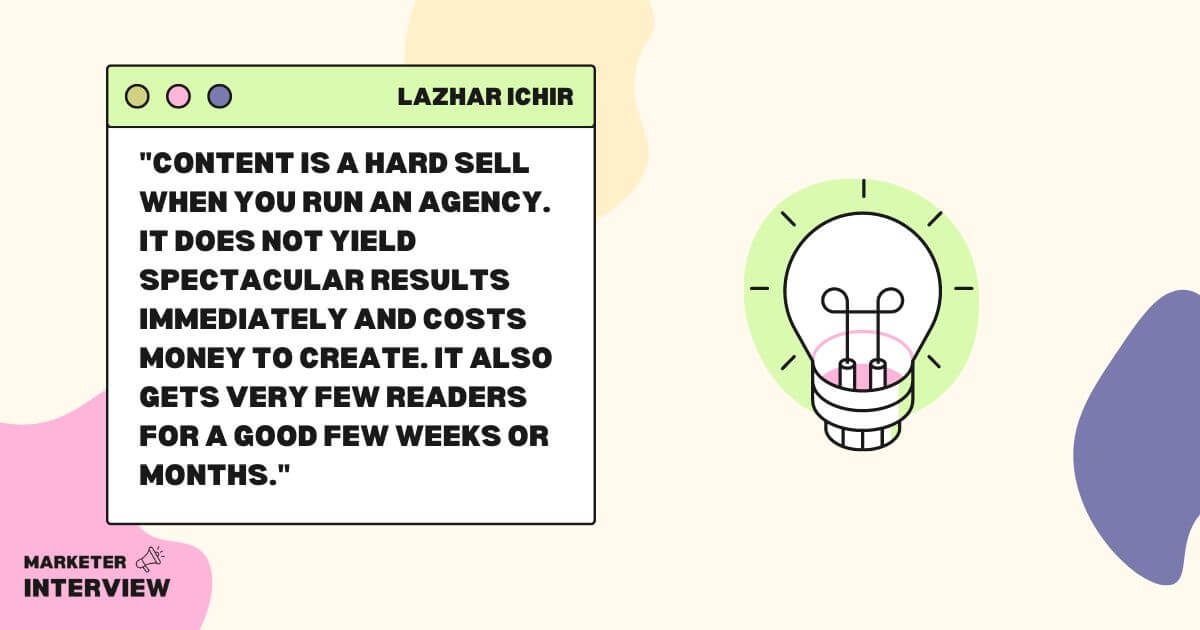
Initially, we had an in-house writing team, and we nailed the research, outlining, and briefing processes to write great content on any topic. We stopped that.
We now have in-house editors and prefer to hire subject matter experts or even get a client’s team member to write the draft so we can then iterate on it on our end with our expertise on how to best present information in the written form.
We now hold ourselves to a much higher standard than we used to, so our processes constantly evolve to meet our expectations.
Another challenge is the overwhelming amount of data. Google Search Console, Ahrefs, and Clickstream data in GA4, it’s just too much.
Please walk us through your process for conducting keyword research and identifying opportunities for organic search growth.
TOPICSEED has clients in many industries, from iGaming to pets, so it’s hard to have a one-size-fits-all process. But it’s nothing miraculous; it starts with a simple question: do we want to chase head keywords, or do we want to chase long-tail keywords?
Then, we spend a long time searching for that term on Google, Reddit, YouTube, Spotify Podcasts, etc. We want to see what is out there and summarise it so we know the baseline (subtopics, media, charts used, etc.).
After that, we create a brief to meet that baseline and go beyond. Can we get experts to chip in with their opinions? Can you present the reader with a new angle on that topic? We know Google isn’t keen on content. So let’s go a few extra miles.
Finally, we look at keyword research tools like Ahrefs to understand the competitive landscape on page 1 to know the enemy and look at what keywords can help get found. Same for FAQ questions if we want to add some.
How do you leverage data and analytics to inform your SEO and content strategies, and what tools or software do you use?
Ahrefs and GSC are the tools we use for the most part.
However, we try not to obsess over these because, in the end, they show a picture of the past and present, and we want to place ourselves in a position to dominate the future for any given page we work on.
But we use these tools in a few different ways:
- During keyword research for a new article
- To refresh an existing article by looking at their “Page 2 & Page 3” keywords so we can include them (and answer the search intent, obviously) and hopefully get more traffic that way
- To monitor performance
- To monitor competitors
Can you tell us about any successful marketing campaigns you have worked on and what made them effective?
A client in the sports betting industry approached TopicSeed to have an existing section filled with more evergreen informative content.
They could not afford us, so we only updated existing articles so they could see what they had prior and what we created for them. They have told me these updated articles have allowed them to afford two new team members.
This story always makes me happy because getting significant results with significant budgets is relatively easy for a hands-on agency like ours.
How do you incorporate AI and programming into your marketing work, and what benefits do these technologies offer?
When I view a website, I love having a quick at-a-glance TL;DR, ideally with bullet points. So I wanted to incorporate it into many of our websites.
When your website has thousands of articles already live, it would be insane (read, time-consuming, and too costly) to do it manually. Instead, they would have to read the article, highlight essential points, decide which to choose and which to drop, and finally put them in excellent, one-sentence bullet points.
We’ve built our own internal WordPress plugin that connects to the Openai API and summarises the article in roughly 5 to 15 bullet points, depending on the length of our piece of content.
Then, the human editor can click the bullet points they prefer, and it automatically gets added and saved. It’s now in QA internally and should go live in May. It will save us thousands of human hours, and there is no hallucination problem as it’s all taken from our existing article.
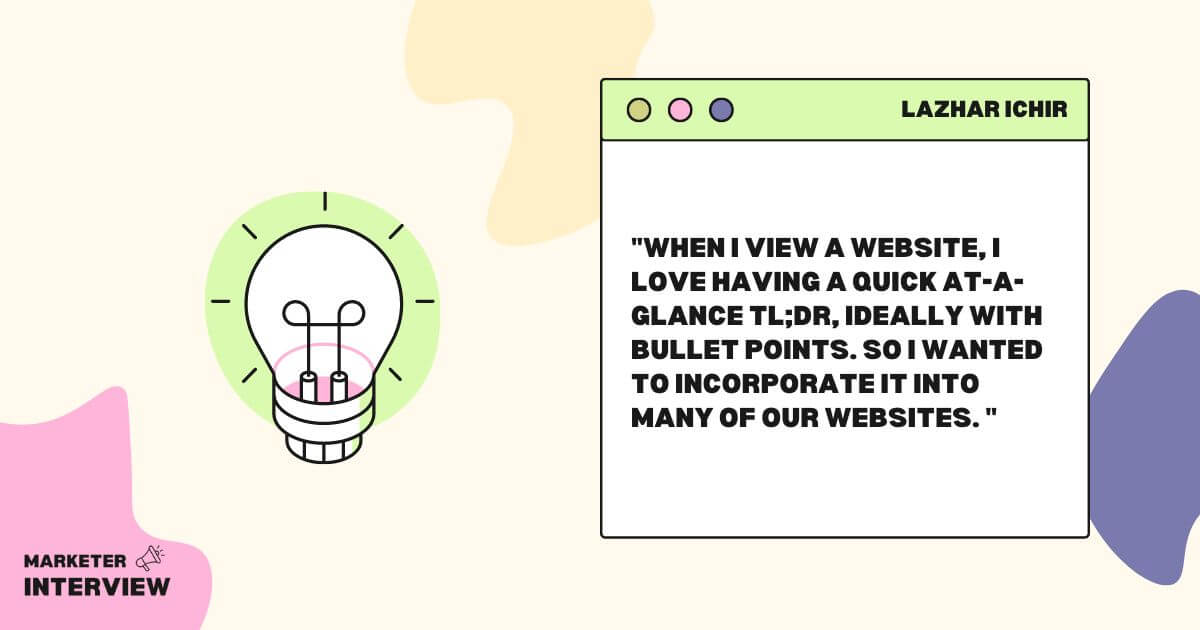
What advice would you give someone just starting in marketing and interested in specializing in SEO and content?
Experiment. Too many beginners ask questions on Reddit and other channels when they can try both ways and see which works best. Both may do.
And an even more critical piece of advice is to avoid following or getting too caught up in online SEO influencers. So many of them have some sort of thing to sell you and only share what worked – they don’t share the dozens of failures they have had.
And unlike “voice search,” which never became popular, large language models and chatbots will forever change how we do our online research. So ride that wave or drown, essentially.
Since day 1, I have tried to avoid tools that hide the magic as much as possible. I like to know the recipe and prefer to cook it myself as it gives me more granular control over the entire process.
However, some tools are just too valuable to dismiss. For example, we use Ahrefs quite a bit daily, and we’ve tried competitors and could quickly settle for them too. However, for local SEO, we do like Bright Local.
For coding and AI, we use Golang as the primary backend language and React/Svelte on the front end of most of our internal tools. We’re hosted on Google Cloud Platform (mostly Cloud Run and Functions) and use Google Natural Language and Openai APIs extensively.
